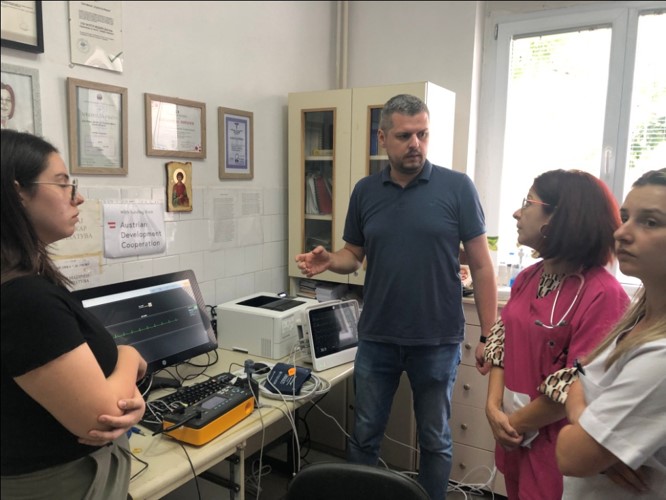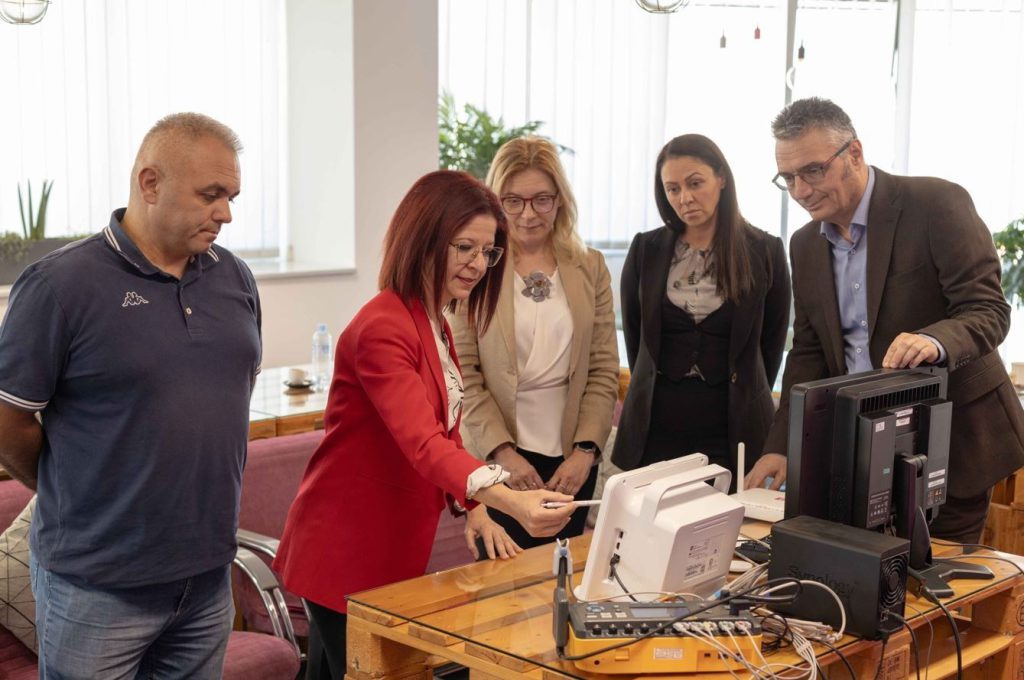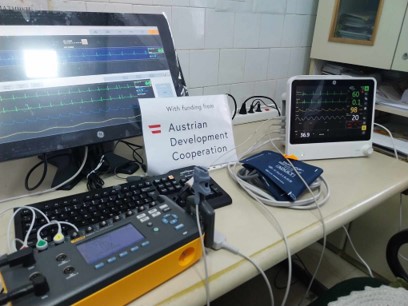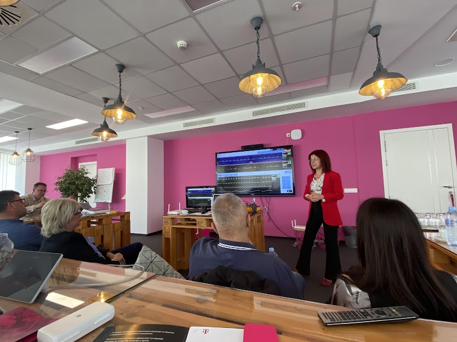
In today’s era of digitalisation and rapid technological advancement, the possibilities for improving people’s lives are virtually limitless. When designed with local needs in mind, developed through a participatory process, and underpinned by cutting-edge technologies, local public services can be transformed to better serve citizens. A prime example of this transformation is Delchevo Municipality in North Macedonia, where, with the support of NALAS and the BACID program, the municipality has revolutionised its elderly care services.

Like many municipalities in the region, Delchevo has faced significant challenges in providing adequate social services. The shortage of healthcare providers, their concentration in the city centre and the lack of model medical equipment resulted with limited access for elderly patients in rural areas to regular medical check-ups and adequate care.
The digital “Elderly Care System” now provides better care for elderly people, especially those in rural areas or with limited mobility, by remotely monitoring their vital health parameters. In just two months over 70 patients were provided support through the system.

The system allows individuals to easily track key health metrics—such as blood pressure, heart rate, body temperature, and blood oxygen levels—using intuitive, at-home devices. This data is securely transmitted in real-time via broadband to a central monitoring station, where healthcare professionals can continuously assess the information, identify potential issues, and provide accurate diagnoses. If any abnormalities are detected, an alert is triggered, enabling swift intervention without the need for the individual to visit a clinic.

“This innovative solution aims not only to improve care but also to reduce the social isolation of older people. It enhances the feeling of care, as people receive continuous professional support. In addition to improving the quality of life for the elderly, the project promotes social cohesion within the community, reduces isolation and promotes inclusion by focusing on remote areas and people often excluded from regular healthcare. This project is also contributing to bridging the urban-rural divide with digital tools to help close the gap in care between urban and rural areas”, says Ms. Jana Belcheva Andreevska, NALAS Digitalisation and Smart City Officer.

Dr. Sonja Mavrodieva is the first family doctor who started using the equipment, with remarkable results. „The hypertension therapy of even half of the patients was corrected and many arrhythmias were resolved in this short period of using the system. Patients with asthma were monitored and responded adequately with inhalation therapy and necessary follow-up investigations. This system is a revolutionary solution that will make a big difference for the elderly and people with special needs“, said Dr. Mavrodieva.
***
The Austrian Association of Cities and Towns (AACT) and KDZ – Centre for Public Administration Research implement the programme „Building Administrative Capacity in the Danube Region and the Western Balkans“ (BACID), supported by the Austrian Development Agency (ADA) with funds from the Austrian Development Cooperation. Project partners in the Region are the Regional School of Public Administration (ReSPA) of the Western Balkans and the Network of Associations of Local Authorities in South-East Europe (NALAS).